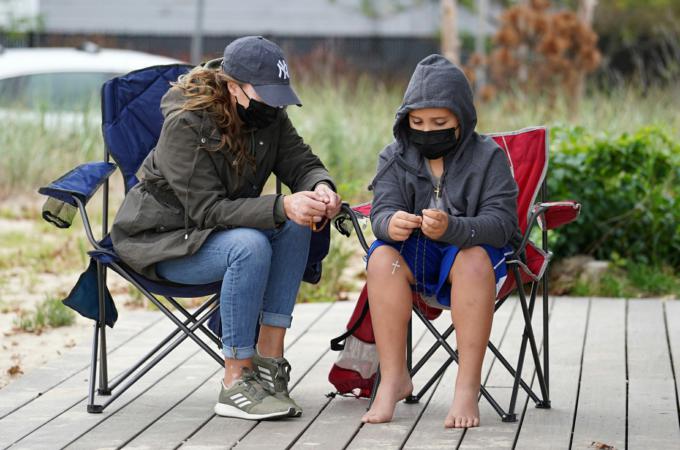Faith at home is faith for others
Did you know that one of the most famous lines attributed to St. Teresa of Kolkata was never spoken by her?
"If you want to change the world, go home and love your family."
What Mother Teresa actually said came from her Nobel Peace Prize acceptance speech in 1979:
"My prayer for you is that truth will bring prayer in our homes, and from the foot of prayer will be that we believe that in the poor it is Christ. And we will really believe, we will begin to love. And we will love naturally, we will try to do something. First in our own home, [then the] next door neighbor in the country we live, [then] in the whole world."
Rather than telling us to go home, she was urging us to go out -- to start where we are, but never to stay there.
In a year when religious education is happening at home for many families, this truth is more important than ever. Faith at home is not faith for home alone. The call to love moves outward, not inward.
What happens within the walls of our homes cannot define our faith or limit our love, because we are always called to turn toward others and seek their good as we work toward the kingdom of God.
What's more, as parents, grandparents or guardians, the faith we are trying to nurture within our children is not only about them.
As a white family living in the Midwest, for example, my husband and I do not experience racism as many of our friends and relatives do. But we are called to fight passionately against this evil.
As a middle-class family with food in our cupboards, we do not experience hunger or poverty like others in our community. But we are called to serve all who are suffering.
As a family with access to technology and two parents who can work from home, we do not worry about our kids' safety or supervision while they are distance learning. But we are called to care about the education of all children, not just our own.
Our Church defines the common good as shared efforts to "make accessible to each what is needed to lead a truly human life: food, clothing, health, work, education and culture, suitable information, the right to establish a family, and so on" (Catechism of the Catholic Church, No. 1908).
Now is the time for Catholics to pray, act and vote for the common good. As followers of Christ who came to lay down his life for others, we cannot concern ourselves only with our inner circle or our own well-being.
Faith compels us to look outward, to see Christ in the least among us and to ask what the most vulnerable in our society need. How we pray, what we teach and how we serve are all ways that we form children (and adults!) to become people for others: Catholics called to the common good.
The catechism reminds us that "the dignity of the human person requires the pursuit of the common good" (No. 1926). Our personal experiences, individual desires, or particular preferences are not ultimate. Instead, God calls us to move out toward those who are in need.
Seeking the common good is challenging and countercultural, but deeply Christian. We need it acutely in this time of widespread suffering.
Remember St. Teresa's wisdom. She was not telling us to go home and shut the door behind us. She reminded us that home is where we start -- and where we leave to serve our neighbors, strangers and even our enemies.
In uncommon times, we are still called to the common good.
- Laura Kelly Fanucci is a guest columnist for Catholic News Service.



















